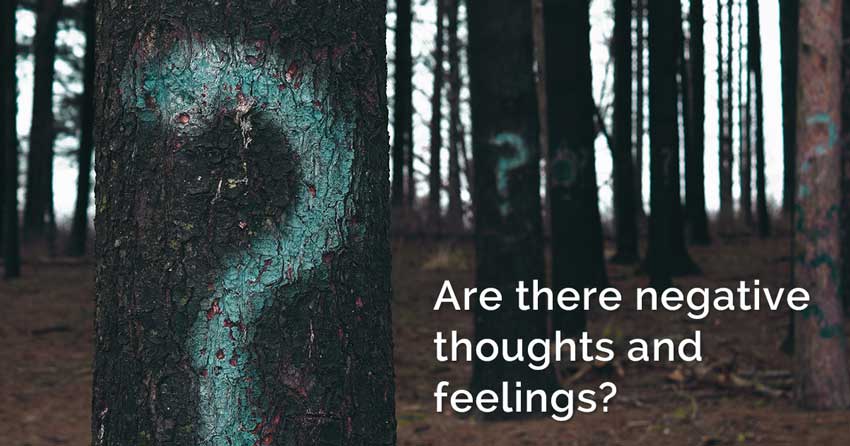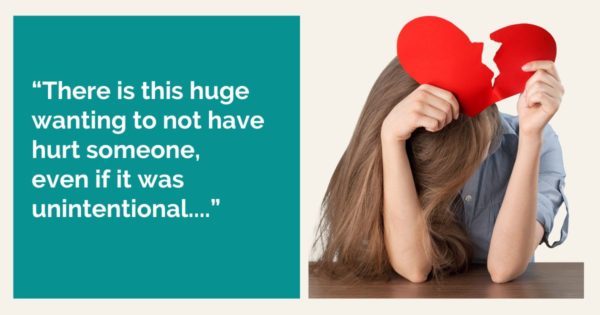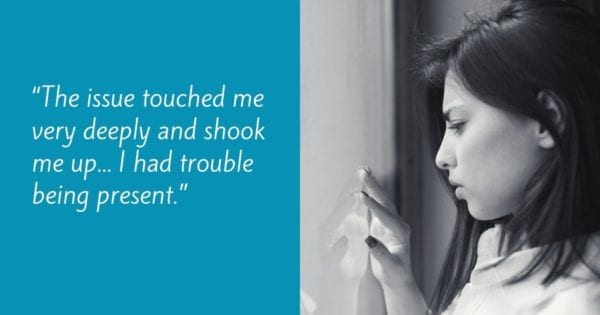Labeling a thought or a feeling as “negative” is already a strategy for suppression.
Julie writes:
I was struck by your Tip (#559) on the neuroscience of negative thoughts and feelings. I’ve had many, many years of low-grade anxiety and depression (some years not so low grade), in spite of talents, skills, intelligence, and education. I feel as though I’m stuck in a loop where I’m regularly asking myself the question, “What am I missing?” I’ve tried so many things. I’ve even had it suggested that when I notice a “negative” thought to snap my wrist with a rubber band!
All of it has felt to be in contradiction with a fundamental belief I hold, which is that my life, and everything about it, has significance. Even, and maybe especially, the thoughts and emotions that feel “stuck”. Focusing, at least your particular flavor of Focusing, addresses that for me. It has never felt true that I should either ignore, power past, or beat my “inner critic” with a stick, for instance, because it doesn’t make sense to kill the messenger. I just can’t seem to access the message…
Dear Julie:
It feels profoundly wrong to me to treat any thoughts and feelings as “negative” and therefore to be eliminated. To me this is exactly parallel to how we can marginalize human beings… and how wrong that is.
Labeling a thought or a feeling as “negative” is already a strategy for suppression. I feel it comes from a place that assumes these thoughts and feelings have nothing valuable to contribute, and cannot change.
My experience has been the opposite. I find that when I turn toward the thoughts and feelings that another part of me calls “negative,” and get curious, change comes, along with insight, more freedom and more possibility.
Let’s take your question, “What am I missing?”
Notice how it would be to re-phrase it this way: “I am sensing something in me that feels that something is missing.”
That feeling… that something is missing… actually knows about what is missing. Focusing is a way of listening so you allow this part of you to show you what it knows.
It doesn’t speak in the language of the intellect. If you ask it, “OK, what’s missing?” you will almost certainly not get an answer. And that may feel like sitting at a blank wall, frustrated and helpless.
It’s not resisting you. It just doesn’t speak head-language.
Instead of asking, sense. Sense in the body. Find the feeling of “something is missing.” And then slow down even more, sit next to it, describe it, let it know you are with it. The “knowing” emerges bit by bit, unclear at first. And when it comes, your body gives you a “yes… that’s it.”
So many of us never learned how to listen to ourselves… and when we do, it’s like finally finding a long-lost love.








